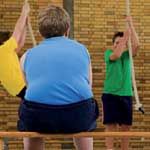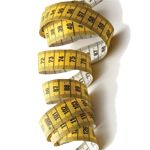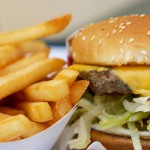
One of the biggest health issues in this country at the moment is obesity. More and more Aussies are becoming overweight or obese – obesity rates in Australia have more than doubled over the past 20 years, and if the increase continues at this rate, around 75 per cent of Australians will be overweight or obese by 2020!
How do we get fat?
Fat is deposited on our bodies when the energy we get from the food we eat is greater than the energy we use up. Even small imbalances over a long period can add up.
Why are we getting fatter?
There are a whole bunch of reasons why more of us are becoming overweight and obese. Factors known to increase the risk of obesity include:
- Birth factors – some studies have shown that a person is more likely to become obese if they didn’t get proper nutrients while they were in the womb, were born with a low birth weight and weren’t breast fed. Other studies say that babies born with a high birth weight are more likely to become overweight.
- Eating more than you use – our bodies store any excess energy (kilojoules) as fat. While this was useful back in ancient times when we lived off the land, now we rarely do more than drive to the supermarket to get food, and so don’t need extra energy for hunting and gathering.
- Inactivity – Again, our ancestors used to be active all day long, hunting and gathering food. Now we live mostly inactive lives. This means we burn less energy, and are more likely to have excess kilojoules left over, which will be stored as fat.
- Socioeconomic factors – studies have shown that people with less education and lower incomes are more likely to be overweight or obese. This could be because they have less access to healthy foods and physical activities.
How does this affect our mob?
Obesity is a particular concern for the Aboriginal and Torres Strait Islander community – around six out of 10 Indigenous people are overweight or obese. This is having a serious impact on our health and well-being.
DIABETES
Obese people are 10 times more likely to develop Type 2 diabetes – something that is already a big problem in our community. In fact, Aboriginal and Torres Strait Islander Australians have the fourth highest rate of Type 2 diabetes in the world.
Estimates vary, but it is thought that anywhere between 10 and 30 per cent of Aboriginal and Torres Strait Islanders have Type 2 diabetes. This rate is about two to four times higher than the rate for non-Indigenous Australians. The incidence of gestational diabetes (diabetes during pregnancy) is also two to three times higher among Aboriginal and Torres Strait Islander women than in the general Australian population.
OTHER CHRONIC DISEASE
Obesity increases the risk of many chronic and potentially lethal diseases. Most of these diseases are preventable with the right diet and lifestyle.
Generally speaking, the more body fat you’re carrying, the higher the risk to your health.
Some of the other chronic conditions and diseases associated with obesity include:
- Insulin resistance
- Cardiovascular disease
- High blood pressure
- Atherosclerosis
- Stroke
- Some cancers, including breast, endometrial and colon cancer
- Gall bladder disease
- Polycystic ovarian syndrome
- Musculoskeletal problems such as osteoarthritis and back pain
- Gout
- Cataracts
- Stress incontinence
- Sleep apnoea
How can I avoid obesity?
The simplest way to maintain a healthy weight is to eat well and get plenty of exercise.
HEALTHY EATING
- Don’t skip breakfast or other meals – this will just make you hungrier later on and more likely to eat too much;
- Eat a wide variety of healthy foods every day – two serves of fruit and five serves of vegies, as well as plenty of wholegrains;
- Try to reduce the amount of bad foods you eat, such as chips, cakes, chocolate and greasy fast food;
- Limit the amount of fat you use in cooking, use lower fat cooking methods like stir frying, grilling or microwaving, and remove any visible fat from meat before cooking;
- Use reduced fat dairy products;
- Read the labels on food products before you buy them to see if they are high in fat or sugar;
- Eat smaller portions of food and eat more slowly; and
- Drink more water!
MORE EXERCISE
Even small changes in your day can make a difference in how much energy you burn.
Small changes include:
- Take the stairs instead of the lift;
- Get off the bus or train one stop earlier or park further away from your destination and walk the rest of the way;
- Get a bike and ride to work, school or the shops instead of driving;
- Take your dog or a friend or neighbour’s dog for a walk;
- Have a game of footy with the kids;
- Get a group of friends together for a weekly walk and catch-up; and
- Join a sporting team.
To get some real health benefits, you’ll need to add some regular vigorous activity to your routine. Experts recommend getting about 30 minutes of vigorous activity (exercising enough to be breathless) three or four times a week.






Comments are closed.